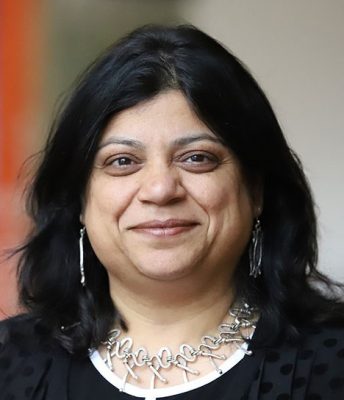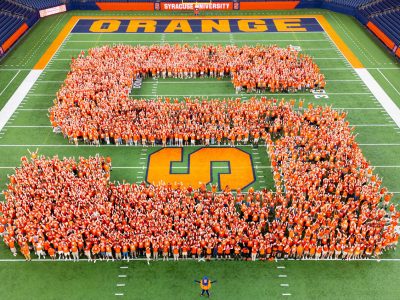Women in Science and Engineering (WiSE) Marks 25 Years, Welcomes New Faculty Co-Directors
Professors Shikha Nangia and Marina Artuso have been named faculty co-directors of Women in Science and Engineering (WiSE). Founded on campus 25 years ago, the program supports women in science, technology, engineering and mathematics (STEM) fields.
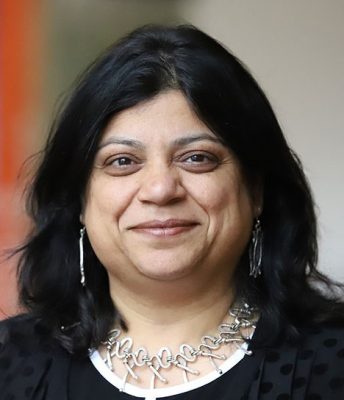
Nangia is professor and interim chair of biomedical and chemical engineering in the College of Engineering and Computer Science (ECS). Artuso is a distinguished professor of physics in the College of Arts and Sciences (A&S). They s쳮d outgoing co-directors Shobha Bhatia and Katharine Lewis.
Nangia joined the University in 2012 as a tenure-track professor. Her work involves the creation of computational models to examine the body’s blood-brain barrier at the molecular level. Those findings help develop drugs that can penetrate the barrier to advance medicinal treatments for neurodegenerative diseases such as Parkinson’s and Alzheimer’s.
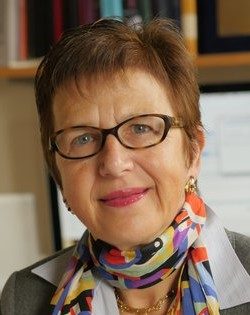
Artuso is an experimental physicist who works in experimental particle physics. Her research focuses on interesting properties of beauty and charm quarks and on the novel instrumentation needed to study their decay properties. She came to the University as a research assistant professor of physics in 1993, was appointed a professor of physics in 2005 and recently was named a fellow of the American Association for the Advancement of Science.
WiSE faculty co-directors serve as advocates, engaging with university leadership, the campus community and external audiences. They also develop strategic vision for the organization, offer budget input, and actively participate in programming. WiSE was created by and is led by faculty. Its goals are to increase the representation and retention of women faculty members in STEM fields, to highlight women scholars and to develop advising and mentoring programs.
WiSE serves members across 18 departments in six colleges and schools: A&S, ECS, School of Information Studies, School of Education, School of Architecture and the David B. Falk College of Sport and Human Dynamics. It presents social, academic and professional development programming for undergraduate and graduate students, postdoctoral scholars and faculty in tenure, tenure-track and non-tenure-track positions.
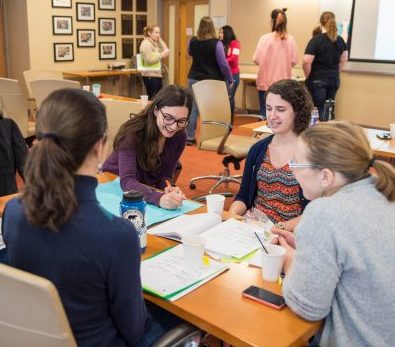
Faculty present workshops, act as mentors, offer portfolio reviews and serve in many capacities to support learning and teaching, says WiSE director Sharon Alestalo.
“Their active involvement helps direct how we can support faculty success. We do that through programming for them and by providing activities and events that support the students and scholars they work with,” Alestalo says.
WiSE also supports the recruitment of women faculty in STEM. When the program was founded, there were 18 women faculty members teaching in 10 A&S and ECS departments. Today, there are 174 tenure, tenure-track and non-tenure women faculty members working in 18 areas, Alestalo says. STEM women faculty in WiSE have also attracted more than $104 million in research funding during the last five years, she says.
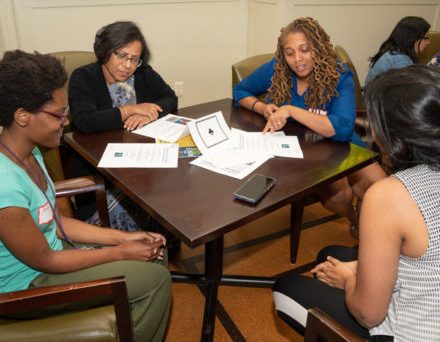
The organization is open to all. Undergraduate and graduate students, postdoctoral scholars and faculty women and their allies of any gender, race, ability and identity who work, study or are interested in the STEM fields are welcome.
